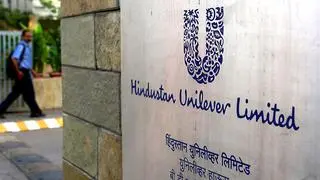K Ganesh is a serial entrepreneur, partner of Venture-builder platform GrowthStory and a promoter of ventures such as online grocer BigBasket, home healthcare company Portea Medical and online food delivery start-up FreshMenu. In his journey of more than two decades as an entrepreneur, he has faced several challenges and unexpected situations. But what he is facing now is unprecedented, in his own words.
The nation-wide lockdown imposed by the Centre to control the spread of coronavirus has left him fighting several battles, especially with regard to BigBasket. While the company’s operations team of the company has been busy with the day-to-day affairs, Ganesh has been the public face of BigBasket, replying to almost all consumer complaints on micro-blogging site Twitter phlegmatically. He hasn’t lost his sense of humour too.
For instance, when a customer in Chennai wanted to know when BigBasket would start operations in the city, Ganesh replied: “Yes, please. Believe me Chennai – Mylapore, Triplicane, Adayar are infested with my relatives who have hounded my 84-year old mother. Only half my problems are twitter escalations. Rest are from my wife and Chennai relatives.” He even posted pictures of himself peeling potatoes at home and added: “And for those asking, did get this from @bigbasket_com, had to wait four days for my slot, no promoters quota. Happy customer:)”
Ganesh lobbied hard to get the Centre and State governments to recognise BigBasket as a company providing essential services. He is happy with the way the governments responded. BigBasket has started operations in all the cities it was present in. In each city, the company had to get the approval of the government and the police. A bigger problem was that a large number of delivery boys, mostly from the North-East and north India, had left for their villages due to fear.
Local issues
The backlog is huge and orders are difficult to fulfil, mainly because supply is also limited. Inter-State movement of trucks has been stopped, essential commodities are not being moved and warehouses are running out of stock. Ganesh hopes inter-State movement of essential commodities will be allowed in three to four days. BigBasket, which does about two lakh deliveries on a normal day, is now doing about 90,000.
Most often, the issues that crop up are purely local — that is, it may be a problem in, say, an Indira Nagar area of Bengaluru, but may not be one in Yelahanka in the same city. There are no standardised identity cards for those doing home deliveries. He says the authorities concerned in all the States they are dealing with have been extremely receptive to suggestions, are working hard to find solutions and moving things on a war-footing.
It is a multivariate problem that makes it all the more complex to solve. For instance, police in Mumbai would not allow FreshMenu’s central kitchen to open because of Section 144 regulations and even wanted to fine the company because it was open. The company officials tried explaining that food was classified as an essential service and that they were following the guidelines as per law — not more than four people in the kitchen, each one of them maintaining a safe distance from the other. This again required local level intervention.
While restaurants and food delivery outlets are classified as essential services, a cook is not considered part of that. How does it work, wondered another founder.
An employee of Portea Medical, in uniform and with an identity card, was arrested in Kerala while going for a home visit and his vehicle impounded. Another employee had to go to the police station, explain that the person is a medical staff on a vital home visit to take care of an elderly patient and get him released. The home chemotherapy session for a cancer patient in Bengaluru could not be given as per schedule as the drugs had to come from Mumbai and they were stuck as all inter-State movement had been banned.
Take the case of Chai Kings, a Chennai-based start-up that serves a variety of tea through its kiosks. It recently raised funding from investors, including The Chennai Angels. It has been forced to shut down its outlets because of the lockdown. Due to the curfew, customers cannot congregate at a shop and tea drinking happens mostly with people standing in small groups. According to Jahabar Sadique, co-founder, Chai Kings has 40 outlets in all — 38 in Chennai, one each in Coimbatore and Hyderabad. Eight more outlets — three in Coimbatore and five in Hyderabad — are ready to open, but that will have to wait.
Chai Kings used to sell about 25,000 cups of tea a day and has 420 employees on its rolls, a majority of them from the North-East. Sadique says all the employees are provided accommodation in the proximity of the outlets. He is confident that their March salaries will be paid in full. If the lockdown continues, they may have to dip into the money they raised to pay salaries, but that is not something they are thinking about right now. Even though food delivery apps such as Swiggy and Zomato are operational, only a third of Chai King’s sales happen through these platforms.
Impact on micro enterprises
Sanjay Sharma, Managing Director of the Gurugram-headquartered Aye Finance, an NBFC that lends to small businesses, says the lockdown will have a major impact on the micro enterprises. While grocery stores and small eateries may be open during the lockdown, those in manufacturing activities such as shoe making, handicrafts or a welder will have to shut down. They will not be able to get raw materials and will also not be able to ship out finished products.
According to him, Aye Finance is in touch with its customers assuring them of all the support to make sure the business revives quickly once the lockdown is lifted and that the business stabilises really fast. Aye Finance has done a quick survey of some of its customers who have assured the NBFC that they will be able to meet the EMI obligation, but the question is how do they make the payment. Aye is trying to see if it can get a digital wallet in place to collect the payments.
All of Aye Finance’s employees are working from home. Sharma says that even when the crisis first hit, the management anticipated some disruption and bought 150 laptops for the staff to work from home so that productivity is not affected.
Rashmi Daga, CEO, Fresh Menu, which serves a variety of cuisine, says they are back in business, but the issue is one of finding delivery boys. Customers are also wary of ordering chicken dishes on the menu because of the scare that the virus can get transmitted via the bird. Fresh Menu does about 5,000 orders a day now in Bengaluru, Delhi and Mumbai, which is 50 per cent of what it used to do prior to the lockdown. The company has a capacity of serving 15,000-20,000 dishes a day.
Jagadeesh Kumar, co-founder, The Indus Valley, a Chennai-based start-up that sells a range of natural cookware products and which recently raised angel funding, says the company has suspended all operations. The start-up works with artisans and manufacturers in Tamil Nadu, Uttar Pradesh, Maharashtra and West Bengal, giving them designs for the products. Their vendors are not in a position to supply them the products, which they cannot sell to their customers. The company used to ship over 6,000 orders a month across the country. The Indus Valley has a central warehouse in Chennai and employs about 30 people. “We will pay them their March salaries, but April we don’t know what will happen,” says Jagadeesh Kumar.
Tanuj Jhunjhunwala, CEO, Planys Technologies, an IIT Madras incubated deeptech start-up that makes underwater robots, says all the 75 employees, are working from home as all operations have been suspended. The sales staff are being giving training, while those involved in research are working on new product designs and the like. There is, he says, a lot of uncertainty and there is no point worrying too or being too casual. Jhunjhunwala says the company is in a position now to pay salaries and they are working in parallel on cash planning.








Comments
Comments have to be in English, and in full sentences. They cannot be abusive or personal. Please abide by our community guidelines for posting your comments.
We have migrated to a new commenting platform. If you are already a registered user of TheHindu Businessline and logged in, you may continue to engage with our articles. If you do not have an account please register and login to post comments. Users can access their older comments by logging into their accounts on Vuukle.